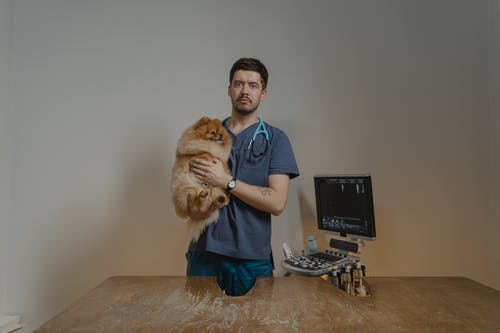
No individual wants to think about the worst-case scenario, especially when it comes to their pets. The best thing to do in the event of a pet-related emergency is to be prepared. And while numerous things could go wrong and require you to take your dog or cat to the emergency vet, we’re focused on oral health in this article and what to do if you need to get your pet into a vet dentist as soon as possible.
Treatment Options for Pets With Dental Emergencies
There are many ways to treat dental emergencies in pets, and everything comes down to the main cause of the problem. Gingivitis in pets requires regular oral cleanings by a veterinarian or veterinary dentistry. However, a severe oral injury may require surgery. Here’s a checklist of the most frequent dental emergencies in pets and how they are treated.
Gingivitis
Gingivitis develops when tartar and bacteria build up in the mouth, leading to gums inflammation. This is something that occurs quite frequently in pets, and it can cause them to be in a lot of discomfort or pain. Surprisingly, gingivitis is a condition that responds very well to treatment.
In most cases, it can be addressed by having a veterinarian do routine dental cleanings and practicing better oral hygiene at home. You can check this link to learn more about how a veterinary dentist treats gingivitis and other dental health problems that need immediate attention.
Periodontal Disease
Periodontal disease can develop when a pet suffers from gingivitis for an extended period without receiving treatment. This illness is caused by an infection that infects the tissues that surround the tooth. Teeth cleanings typically are insufficient to treat gum disease on their own since the infection is much deeper in this condition than in gingivitis. In actual fact, this kind of oral emergency can entail the need for oral surgery to be treated.
Injuries
Injuries to the head and mouth can create a wide variety of complicated and life-threatening issues. The sort of treatment that will be required for addressing this type of dental emergency veterinary care in Oceanside will differ from patient to patient. A surgical procedure will most certainly be highly recommended for treating severe injuries, yet other treatments or preventative care may be sufficient for less serious injuries.
Abscesses and Severe Infections
This condition is usually caused by a fractured tooth that has become infected with oral bacteria. Antibiotics, pain medication, and tooth extraction treat abscessed teeth in canines or cats. Antibiotics are frequently given three days before oral surgery and oral treatment. They also prevent severe infections from infecting other parts of your pet’s body.
The only successful approach to addressing an abscessed tooth is extraction because the disease permanently affects the tooth’s supporting elements, making it difficult for the tooth to carry out the functions it is supposed to do.
Final Thoughts
Having a pet is a long time commitment. Most pet owners misinterpret the frequent dental pet emergencies and wait too long to ask for help. If you believe that your pet has an urgent oral problem, you need to call your veterinarian immediately. They will either give you an appointment as quickly as possible or refer you to an animal medical facility that can provide urgent assistance.
